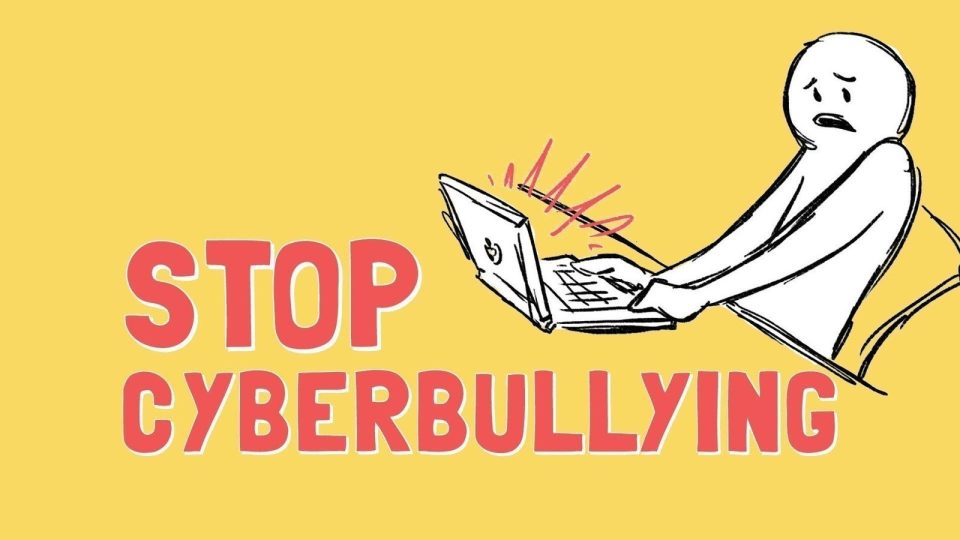THE FESTIVE season is a time to have fun, relax with family, and socialise with friends.
But unfortunately, this freedom also puts many youths at risk of cyberbullying as they spend more time online posting about holiday activities and exciting vay-kays.
A recent global *study found that screen time has increased by 17% for tweens and teens since the start of the pandemic (2019 to 2021) – growing more rapidly than in the four years prior. And, as school holidays approach, it is likely that more hours will be spent online.
“The holiday period is the ideal time to catch up on social media, gaming and shows missed during the stressful exam time. While it’s time to have fun in cyberspace, it’s important to consider the risk of cyberbullying, which could lead to isolation.
This negative mental space can amplify cyberbullying and its concerning effects,” says Rianette Leibowitz, Cyber Wellness and Online Safety author and founder of SaveTNet Cyber Safety.
“Young people easily step into the comparison trap when they measure their reality to their friends’ ‘fabulous’ filtered online lives, which often stirs jealousy and other upsetting emotions, leading to possible bullying behaviour,” adds Leibowitz.
To create more awareness around the consequences and prevention of cyberbullying, Leibowitz partnered with Cadbury P.S. to launch the #SayItLikeYouMeanIt initiative earlier this year. The initiative has already helped more than 300 youth identify signs of bullying or receive assistance with the impact of it.
They accessed the Cadbury P.S. WhatsApp helpline, via 061 979 7217, sent a message with the word HELP and took the steps to watch informative videos, access words of affirmation, download tip sheets and find support through SaveTNet.
Are you a cyberbully*?
Because there are so many forms of bullying, it’s important to ensure that you’re not cyberbullying anyone. Therefore, introspection is required, and it is encouraged to always check your own online interactions to positively #SayItLikeYouMeanIt.
“That means ensuring you know your post’s intention, think about what you comment on, how your words could derail a conversation and pause before you share. Most importantly, stand up for cyberbullying victims, report relevant posts and try to turn dreadful online conversations into positive ones,” advises Leibowitz.
How to deal with cyberbullying
Dealing with cyberbullying is never easy. However, there are ways to regain your power:
- Don’t get caught up in self-doubt and negativity. Instead, focus on the encouraging comments you receive and turn them into positive affirmations for yourself
- Be critical about the posts you’re sharing with the world, and consider the public’s potential responses to your content before you post
- Consider the role of the cyberbully in your life and whether it’s worth giving them any attention. For example, try to ignore and hide comments from someone you don’t have or want a relationship with and block and report them if the bullying escalates
- Seek adult or expert support.
Another way to avoid getting caught up in a dark space is to consider what you are watching on streaming channels, the platforms you spend time on, and the people and the profiles you follow because this content influences your behaviour, mindset, and emotional well-being.
“Young people can also guard their hearts and minds by limiting the people and content they expose themselves to online. Instead, spend time with the people who really care about you, people who inspire you and share authentic moments in the real world,” recommends Leibowitz.
Tips for parents
Parents are also responsible for practising good digital habits and encouraging children to mirror their positive social behaviour. So, as a parent, ensure your social media, cellphone, and digital behaviour is something you’re proud of having your children mirror. That means watching how much time you spend online and encouraging the entire family to enjoy a regular digital detox.
Consider planning festive season activities (picnics, walks on the beach, or hiking) to really connect as family and friends and to beat the fear of missing out (FOMO).
Also, involve the family and friends that your children will visit during the holidays and speak to them about security settings and parental controls they need to implement to protect young internet users.
This includes age restrictions for the content shared on streaming platforms that expose children to moral issues and concepts they are too young to be watching, which could add to their level of anger and anxiety.
Most importantly, be alert to your child’s social media activity and behavioural changes, such as becoming quiet and withdrawn and limiting their interactions with people.
There’s always help
The holiday period is a time of togetherness but if you’re experiencing the negative impact of cyberbullying, reach out to the Cadbury P.S. WhatsApp helpline via 061 979 7217.
Find tips on how to deal with the situation or reach out to SaveTNet Cyber Safety who is standing by to offer support.

